第21章 A LIBERAL EDUCATION [49](2)
Others maintain, quite as strongly, that education with theology is in the same predicament. But this is certain, that those who hold the first opinion can by no means agree what theology should be taught; and that those who maintain the second are in a small minority.
At any rate "make people learn to read, write, and cipher," say a great many; and the advice is undoubtedly sensible as far as it goes. But, as has happened to me in former days, those who, in despair of getting anything better, advocate this measure, are met with the objection that it is very like making a child practise the use of a knife, fork, and spoon, without giving it particle of meat. I really don't know what reply is to be made to such an objection.
But it would be unprofitable to spend more time in disentangling, or rather in showing up the knots in, the ravelled skeins of our neighbours. Much more to the purpose is it to ask if we possess any clue of our own which may guide us among these entanglements.
And by way of a beginning, let us ask ourselves--What is education?
Above all things, what is our ideal of a thoroughly liberal education?--of that education which, if we could begin life again, we would give ourselves--of that education which, if we could mould the fates to our own will, we would give our children? Well, Iknow not what may be your conceptions upon this matter, but I will tell you mine, and I hope I shall find that our views are not very discrepant.
Suppose it were perfectly certain that the life and fortune of every one of us would, one day or other, depend upon his winning or losing a game of chess. Don't you think that we should all consider it to be a primary duty to learn at least the names and the moves of the pieces; to have a notion of a gambit, and a keen eye for all the means of giving and getting out of check? Do you not think that we should look with a disapprobation amounting to scorn, upon the father who allowed his son, or the state which allowed its members, to grow up without knowing a pawn from a knight?
Yet it is a very plain and elementary truth, that the life, the fortune, and the happiness of every one of us, and, more or less, of those who are connected with us, do depend upon our knowing something of the rules of a game infinitely more difficult and complicated than chess. It is a game which has been played for untold ages, every man and woman of us being one of the two players in a game of his or her own. The chessboard is the world, the pieces are the phenomena of the universe, the rules of the game are what we call the laws of Nature. The player on the other side is hidden from us. We know that his play is always fair, just, and patient. But also we know, to our cost, that he never overlooks a mistake, or makes the smallest allowance for ignorance. To the man who plays well, the highest stakes are paid, with that sort of overflowing generosity with which the strong shows delight in strength. And one who plays ill is checkmated--without haste, but without remorse.
My metaphor will remind some of you of the famous picture in which Retzsch [53] has depicted Satan playing at chess with man for his soul.
Substitute for the mocking fiend in that picture a calm, strong angel who is playing for love, as we say, and would rather lose than win--and I should accept it as an image of human life.
Well, what I mean by Education is learning the rules of this mighty game. In other words, education is the instruction of the intellect in the laws of Nature, under which name I include not merely things and their forces, but men and their ways; and the fashioning of the affections and of the will into an earnest and loving desire to move in harmony with those laws. For me, education means neither more nor less than this. Anything which professes to call itself education must be tried by this standard, and if it fails to stand the test, I will not call it education, whatever may be the force of authority, or of numbers, upon the other side.